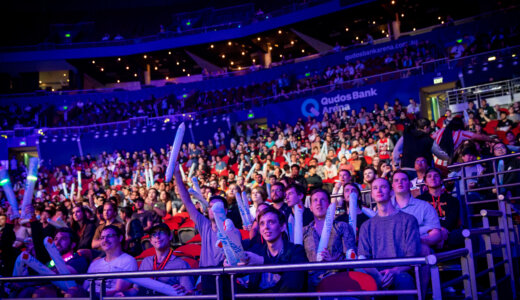Small esports tournament organizers have already started using blockchain technology to host tournaments and distribute prize money. But don’t expect it to make it into the big leagues just yet, according to one investor.
Dave Harris, the Chief Executive of esports investment firm Guinevere Capital, explained in an interview for Cointelegraph that he has observed the use of blockchain in amateur esports competitions. However, he believes it will be some time before major titles and pro tournaments consider adopting the technology.
“There are certainly a lot of places this technology can or is being used in esports, but it will take time for mass adoption into the mainstream titles and events, and as always the major game publishers are the kingmakers.”
Blockchain technology for prize money distribution
Meanwhile, Ivy Fung, executive director of the Esports Players League, thinks that blockchain technology is well suited for distributing prize money. The Singapore-based company operates a blockchain-based platform through which prize money in the form of digital assets such as NFTs and crypto tokens are delivered directly to winners’ digital wallets.
According to Fung, the use of blockchain greatly simplifies the distribution of prize money by circumventing obstacles such as fees charged by banks for cross-border transfers.
“When you’re talking about a global tournament, you need an effective way to distribute the prize pool so you don’t have to wait for the winner to give us their bank account and then verify and all these things.”
However, the prizes are nowhere near as high as international esports tournaments, which can run into the millions.
Opportunity for the industry?
Harris believes that blockchain and Web3 play an important role in esports, but that future developments will need to think outside the box to really capture mainstream attention:
“There may be more efficient ways of using this technology to track and display results, but I’m not sure this is really going to shift the dial.”
“I think a model that allows user-generated content to be commercialized and revenue fairly distributed amongst all stakeholders is an opportunity for the industry.”
A survey by Coda Labs found that most traditional gamers are not fans of cryptocurrencies or NFTs. Ubisoft was criticized for its Quartz NFT project last year, which later forced the company to scale back plans to integrate NFTs into its games.
Despite this, Harris says the technology will ultimately benefit players:
“In principle, ‘actually owning’ in-game items and potentially being able to transfer them to other games or environments is a good proposition for gamers.”
“The actual technology will be used more and more in the future, but I think there is currently skepticism and in some cases pushback from the community where the tech to date has often manifested in what they see as over-commercialization or get-rich-quick schemes.”
Fung added:
“There will definitely be people who go against it, but as long as we can show them the benefits of using this system, I think they will adopt it sooner or later. That will be the norm. Everybody will be using it.”







